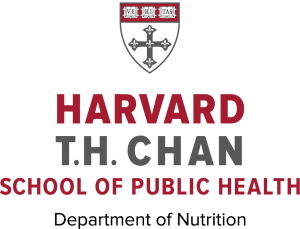The mission of the Department of Nutrition at the Harvard T.H. Chan School of Public Health is to improve human health through better nutrition and lifestyle. The Department strives to accomplish this goal through research aimed at an increased understanding of how diet influences health at molecular and population levels, the development of nutritional strategies, informing policy, the education of researchers and practitioners, and the dissemination of nutrition information to health professionals and the public.
An Overview of the Department, from Past to Present
 Harvard’s Department of Nutrition—the first of its kind in any medical or health center worldwide—has a long and respected history, both nationally and internationally. Since its founding in 1942, the department has made significant contributions toward an understanding of biological mechanisms underlying the effects of nutrition metabolism and health. These include the roles of diet and lifestyle—and their interactions with genetic factors—in the cause and prevention of obesity, diabetes, cardiovascular disease, cancer, neurodegenerative diseases, reproductive disorders, and other health conditions. The department has worked to more effectively translate these discoveries into interventions benefiting communities and vulnerable populations; and has made a major impact on public health policies in the U.S. and around the world.
Harvard’s Department of Nutrition—the first of its kind in any medical or health center worldwide—has a long and respected history, both nationally and internationally. Since its founding in 1942, the department has made significant contributions toward an understanding of biological mechanisms underlying the effects of nutrition metabolism and health. These include the roles of diet and lifestyle—and their interactions with genetic factors—in the cause and prevention of obesity, diabetes, cardiovascular disease, cancer, neurodegenerative diseases, reproductive disorders, and other health conditions. The department has worked to more effectively translate these discoveries into interventions benefiting communities and vulnerable populations; and has made a major impact on public health policies in the U.S. and around the world.
Established in the midst of World War II, initial research primarily involved wartime nutrition concerns, such as intravenous feeding and malaria. Interestingly—though unrelated to nutritional research—former department faculty member Dr. Bernard Lown received the 1985 Nobel Peace Prize through his work with International Physicians for the Prevention of Nuclear War. Over the years, research directions have expanded to include atherosclerosis, heart disease, obesity, cancer, food policy, nutrition education, and undernutrition in low-income countries. Scientific evidence contributed by the department has also informed public health policies. For example, the development of the original “Basic Four Food Groups” informed the U.S. Department of Agriculture’s establishment of the “Basic Four” in 1956, giving rise to the concept of a balanced diet. More recently, department research linking consumption of trans fatty acids with increased risk of heart disease informed the U.S. Food and Drug Administration’s 2006 decision requiring that nutrition labels list trans fat content. This was followed by the landmark 2015 ruling that artificial trans fats (partially hydrogenated oils) are not “generally regarded as safe” for human consumption—thus requiring their removal from processed food products. Other groundbreaking discoveries made by Department of Nutrition faculty—such as the connection between sugary beverages and type 2 diabetes risk, and the DASH diet and blood pressure reduction—have reshaped public policies and changed the global food landscape.

A look back in time
Today, department members are actively engaged in a wide range of cross-disciplinary research in six key areas: nutritional biochemistry, nutritional epidemiology, public health nutrition, global nutrition, planetary health and clinical nutrition. The research programs employ a life-course approach by studying the effects of nutrition on health over the entire lifecycle, from pre-gestation to aging. For more than four decades, faculty and researchers have continued to conduct the largest and most detailed cohort studies of the relationships between diet and major diseases, including the Nurses’ Health Studies and Health Professionals Follow-Up Study. Public health nutrition research includes community interventions to prevent childhood obesity, health disparity, and U.S. food policy in relation to WIC, SNAP, Smart Snacks, and the National School Lunch Program. A new direction of research in the Department involves food systems, environmental sustainability, and human and planetary health.
With education as a key tenant of the department’s mission, hundreds of students, post-doctoral fellows, and research associates have spent their formative years in degree programs, fellowship opportunities, and research collaborations. Many individuals affiliated with the department have progressed to become leaders in nutrition research, education, and practice, as well as creators of nutrition departments and institutions. Situated within the Harvard medical community, with links to international institutions and programs, the department continues to engage in a range of collaborative initiatives and research projects to improve human health worldwide.